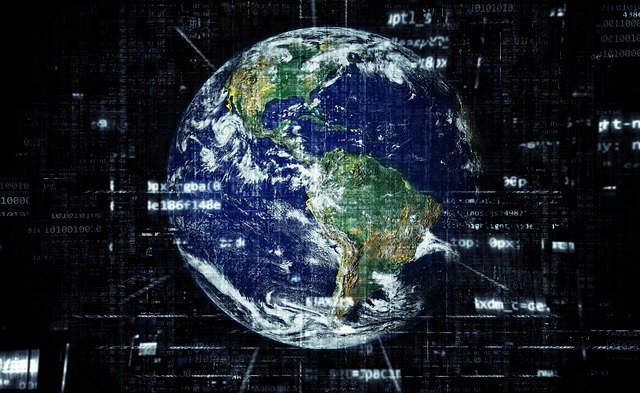During this modern era of technological advancements, offshore finance became the engine room of private enterprise and global capitalism. The growth of offshore finance is depending upon technological and financial changes which include rampant corporate financialization, observing the corporations that assume even more financial characteristics and traits, resulting in the growth of market-based finance, non-bank, non-regulated, which is chiefly planned offshore.
Most of the OFCs manage offshore entities (which usually have a limited physical presence in the OFC where they are legally domiciled) as a nonresident for statistical purposes. For this reason, the statistical collections are not useful for the purpose of defining OFC. However both BIS international locational banking statistics and the IMF’s CPIS, participating OFCs are required to treat as resident all entities that are legally domiciled in their jurisdictions.
The W’s of Offshore Finance
Following are the questions that need to be answered every time when it comes to offshore finance:
What Is Offshore Finance?
The term offshore refers to something outside the national boundaries, no matter if the location is water-based or inland. The term offshore is used to describe investments, foreign banks, corporations, and deposits. There might be a possibility that the company moves offshore for enjoying relaxed regulations or for the purpose of tax avoidance. On the other hand, offshore financial infrastructures can be used for illicit purposes such as tax evasion, money laundering, unsecured lending.
Offshore financial center (OFCs) can be defined as a jurisdiction or country that provides safe and secure financial services to the residents that do not belong to the country on a scale that is out of proportion to the financing and the size of the domestic economy.
Where Offshore Financial Centers (OFCs) are Situated?
Offshore can be referred to a variety of foreign-based accounts and entities. The account or entity must be based on any other country than the customer’s home nation in order to qualify for offshore. There exist numerous jurisdictions, territories, and countries that possess offshore financial centers (OFCs). There exist many well-reputed and popular centers such as the Cayman Islands, Singapore, and Switzerland, and some less-popular centers include Dublin, Belize, and Mauritius. However, the level of transparency and regulatory standards vary among different OFCs.
Who Can Get An Offshore Bank Account?
An offshore bank account can be opened by anyone over the age of 18. Although most of them are available for those who are not everlasting residents of the country. Offshore accounts are the saving accounts that are situated outside the country of the holder’s residence. These accounts are used for the accumulation of euros, dollars, or any other legal tenders and currencies. It is mandatory to anyhow invest £5,000 or £10,000 to have an offshore bank account. There also exists some OFCs that allow opening an account with as much minimum deposit as £1.
Which Countries To Open An Offshore Bank Account?
There exist some countries that are always under discussion between offshore investors. Some of the drifting countries are as follow:
- Singapore is the best choice when it comes to a large amount of investment, as large as $200,000. This country provides valuable financial services for wealth management, brokerage houses, funds, and frictionless precise management of money in the account of customers. Moreover, Singapore provides an avenue to different countries such as Europe, United States, Hong Kong, China, Europe, etc.
- The Cayman Islands have a strong international reputation for providing a full range of financial services to their clients. Neglection of tax has made The Cayman Islands are a prosperous source for offshore banking. There is no taxation on property, payroll, withholding, capital gains, exchange control. It allows free transfers of capitalization in any currency.
- Switzerland is very famous and well-known for asset protection. It is very well reputed for offshore banks to hide money. Another reason why Switzerland is popular for offshore finance is for banks with low-risk investments. The political and economic climate of Switzerland is stable.
Why Offshore?
In recent years, the fickle nature and volatility of global financial capital have become increasingly perceptible. Currently, more than forty jurisdictions are providing a wide range of facilities and services for offshore finance and tax evasion. Most of the well-known trading alliances in a growing number of jurisdictions are known for “tax havens”. Offshore finance centers (OFCs) are providing services to the European Union, including Luxembourg and Liechtenstein, channel islands of Jersey and Guernsey, also including latest OFCs, which include Cyprus, Gibraltar, and Dublin’s International Financial Service Center (IFSC). A vigilant amount of money that passes through these places is wobbling. According to one prediction, almost half of the world’s stock of money either flows through tax havens or either resides.
Stimulating the Capitol
Financial infrastructures and banks have collectively entered under this shadow of the financial world, which is considered legal and well-defined from regulated finance and banking. The financial crisis of 2008 exposed that the two worlds of banking and finance are linked to each other intimately, and effectively embrace a whole that is dominated by offshore finance. However, there would be no doubt in saying that global finance is completely based on offshore finance.
In order to attract capital, offshore finance is built out of unilateral commercialization, most of which mostly inaugurates national sovereignty. Capitals are predominantly mobilized via trade and investment protocols and a global web of bilateral taxation.
Slobodian argued that:
“Here is the formula of ultra-conservative alter-globalization and that is, Yes to free trade and free finance. No to free democracy, migration, multilateralism, and human equality. ”
The advent of Trump or Bolsonaro, the rise of Brexit – a close analysis of these and other political developments which is the result of “dark money” suggested an offshore billionaire insurrection rather than people’s anti-establishment rebellion. Even the World Economic Forum (WEF), the chairman of the high church of neoliberalism is distancing himself for the better accommodation of national interests that come under globalization, nevertheless, the fact that offshore billionaire class annually assembles in Davos simply rages on like before.
Effects Of The Efforts Of Global Tax Regulations
It would be a mistake to argue that the Financial Action task Force (FATF) and Organisation for Economic Co-operation and Development (OECD) were entire without effect. The compliance of tax haven jurisdictions seems to face a number of practical and tangible consequences. It would be completely wrong to say that FATF, OECD, and related efforts do not have any effect on the island economies that possess offshore finance centers (OFCs).
Business incorporation matters much more than banking in the British Virgin Islands by itself, given the territory’s historical emphasis on its signature international business company vehicle. Hay and Sharman, both raised a point that one effect of the effort at global tax regulation has been the monitoring of offshore concerns and regimes over the reputation for evenhandedness of the organization like OECD. The effort also significantly resuscitated offshore sovereignty. Rawlings (2007) discusses the remarkable increment in the Tax Information Exchange Agreement (TIEA) which was developed between offshore and onshore jurisdictions, which enhanced the sovereignty of small states
FATCA and Offshore Bank Account Compliance
It was predicted according to the hypothesis that offshore banks would terminate doing business with US citizens. Numerous banks decide to turn away any new US contributors while spurring current contributors in order to find a new residence for their accounts. However offshore banks in many confederations chose to calibrate their client support and reporting to be in compliance completely with FATCA.
What does that actually mean if someone has an offshore account? It means that you may have one or two forms to fill out with the occurrence of tax season. The offshore bank possessing the account of an individual involves mechanisms to help the user with form filling. The same level of support can be expect in all front desks of OFCs for KYC and risk analysis.
Piercing It All Together
Surely there is a solid reason why opting to elevate your domestic accounts with an offshore bank account makes sense. A high rate of interest may apply to checks, time deposit accounts, and account savings based on another federation. The plan involves allowing money to remain in those accounts and analyze the increment in account overtime. Individuals can enjoy greater returns on the deposited collections. For example, if an individual is planning to purchase a home, it is easier to purchase in that offshore location, if an individual has an investment account in place or established banking.































